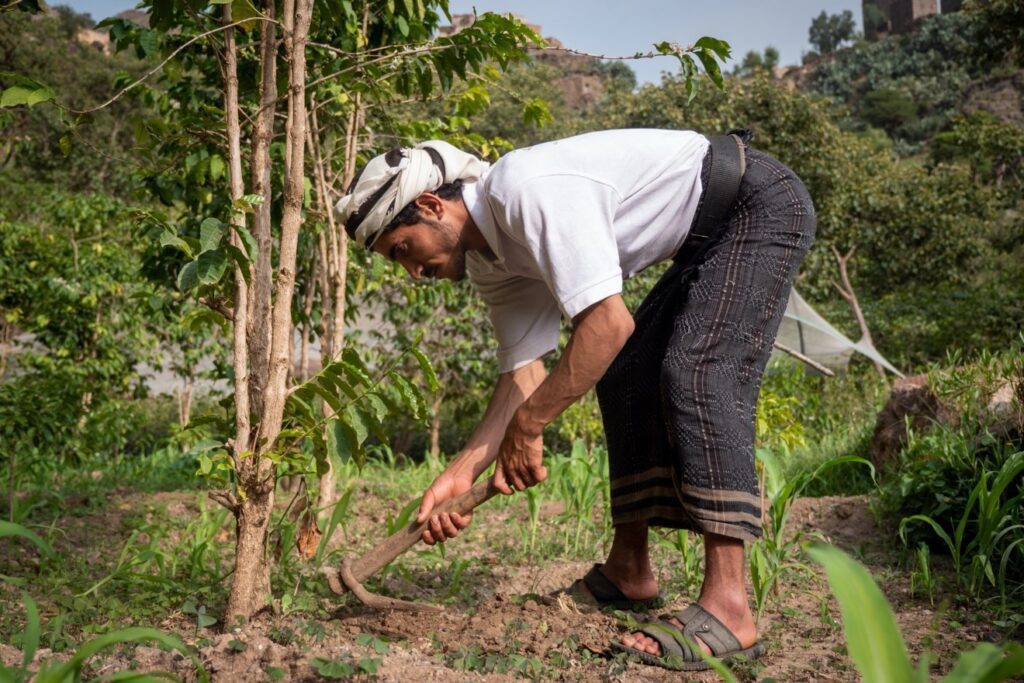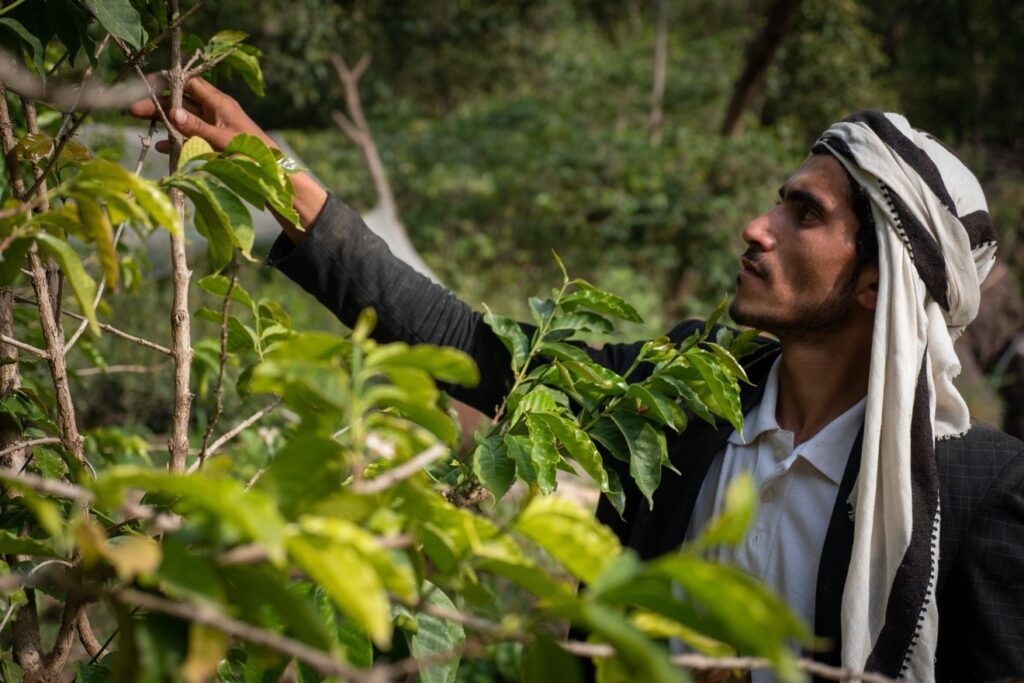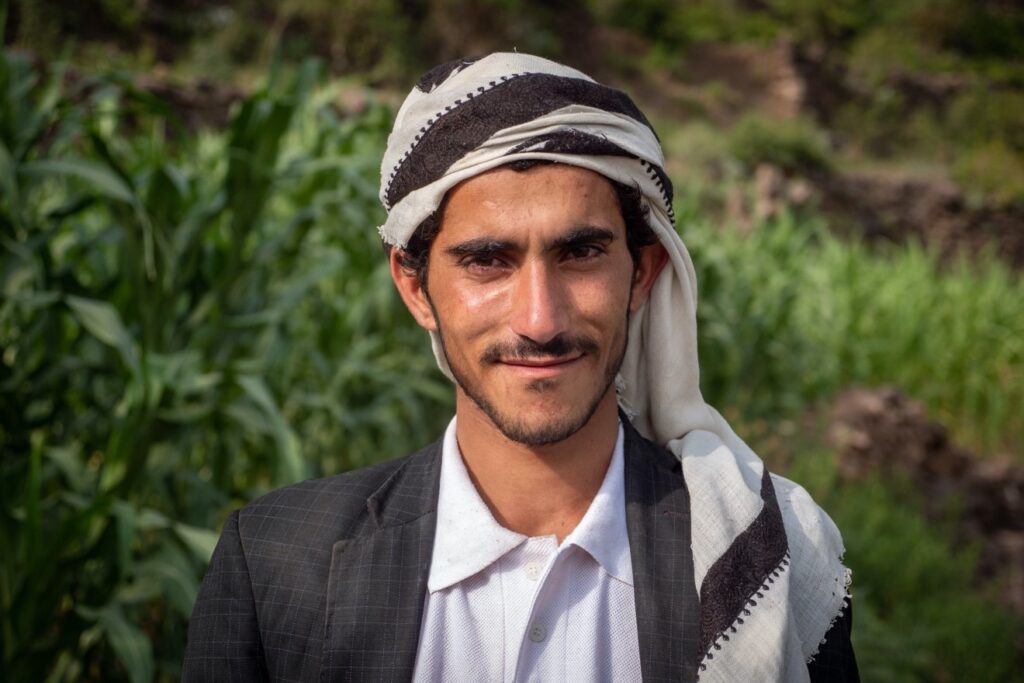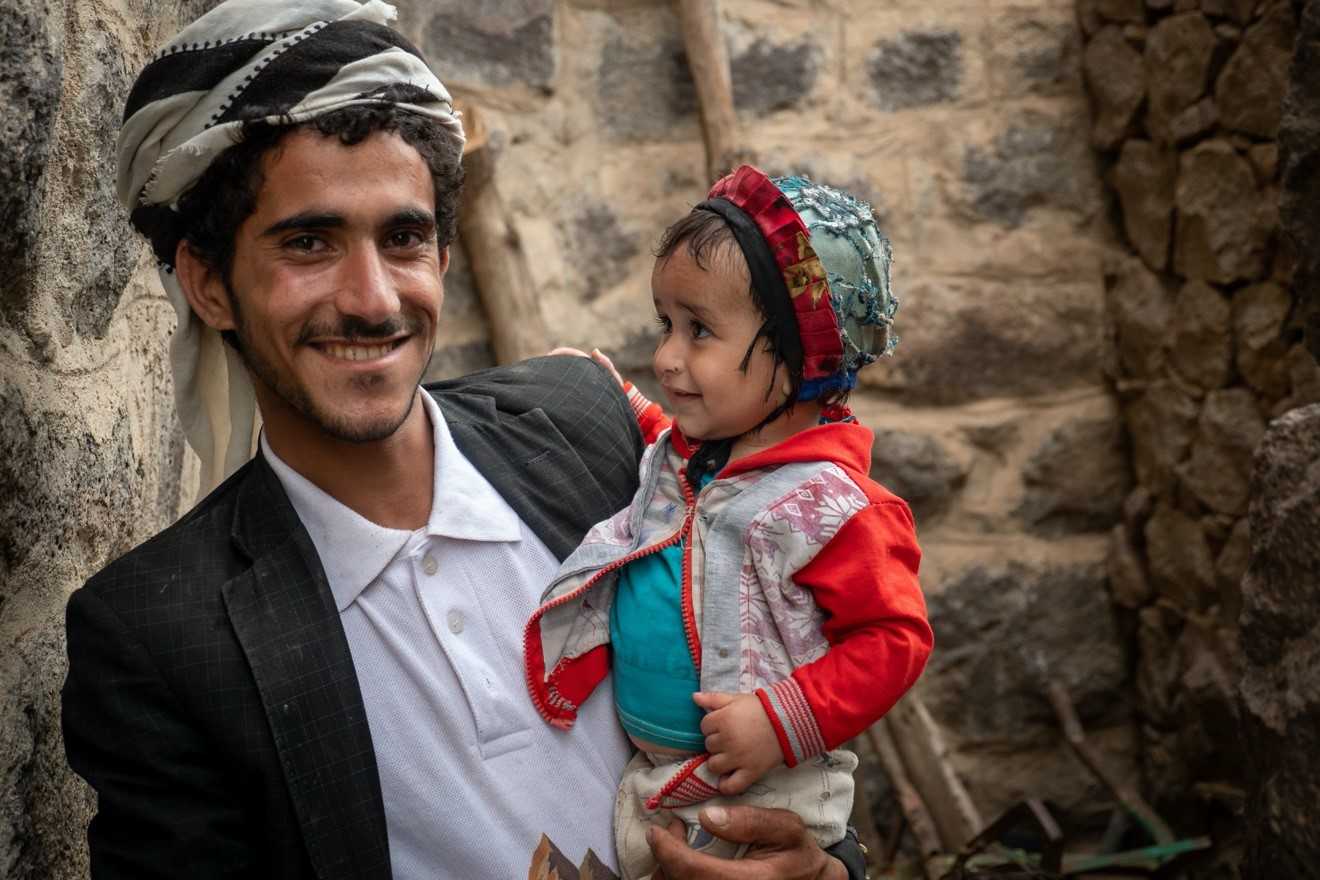MILAN – 1895 Coffee Designers by Lavazza is a new brand created in Turin in an experience factory, a place where craftsmanship meets technical innovation to offer a fascinating trip in the universe. The range includes seven different coffees of which four single origins – Cafuné from Brazil, Encantado from Colombia, Kilele from Kenya and Opera Prima from Yemen – and three blends – Petal Storm, Hypnotic Fruit and Cocoa Rebel.
We met Naser Ali Al Ofairi, a Yemeni coffee grower who contribuited to the 600 kg microlot of the Opera Prima limited edition. In this interview, he talks about the daily life of a coffee farmer and describes his collaboration with Lavazza.
How is the life of a farmer? What’s it like everyday?
I go very early to the farm. If it is harvest time I pick the cherries and sometimes I prune or water the trees and sometimes we plow the land. Everyday I do a different task depending on the needs of the tree.
Farming life is a happy life. The more you take care of your trees the more reward it will give you and that makes the farmer happy.
Which are the main characteristics of your farm? Altitudes, climate conditions, terroir?
Altitude ranges between 2000- 2200 masl.
Climate is cold and sometimes is it very harsh on the trees. Some trees cannot live longer than 40-50 years. The soil condition is a factor of the tree life.
 Is it all cultivated by coffee plants or with other cultures?
Is it all cultivated by coffee plants or with other cultures?
I grow corn and chilies and some fruits such as peaches. Each crop is in a different plot.
What are the type of coffees that you produce and with which methods?
I grow the local coffee which is known as Udaini.
What is the necessary know-how to do it in a professional way?
I collect good soil from different places. And I keep the manure for a while to make sure it gives the best results. These practices are the traditional ones. When planting a seedling I use a different manure every year. I prune my trees yearly as it is very important to prune.
When and why have you decided to be a farmer?
I started working on the farm when I was 11 years old. Going to the farm with my grandfather is my earliest memories in farming.
We have been farmers since ever, but before 2015 we were hopeless about growing coffee. Coffee was not rewarding enough. But now coffee is our main income.
Which are the main difficulties for this work?
Water shortages is the main problem because water sources are far from the farms. There are no irrigation systems that are connected to the farms.
Borer beetle is also the main problem, it has been there for a very long time since our forefathers. But during their time they were able to fight it. We have tried all ways but it is very hard to beat. Sometimes it ruins about one eighth of the harvest. Some farmers who do not pay attention to the diseases it takes almost half of their harvest.
In 2017 we watered out trees on a night and the next day we found all the cherries frozen.
 And what are the risks if nothing will change soon?
And what are the risks if nothing will change soon?
The more coffee we lose the more it affects our land and soil. It takes years repair tree and soil.
How do you think to fight climate change and all the diseases that are going to threaten the future of cultivations?
I think we should plant new trees that can resist the climate. Planting new trees is not easy, we have to change the soil of the land too and plant new seedlings.
How did you achieve to work with an Italian big company as Lavazza?
My coffee quality is why I have achieved to work with a big company like Lavazza. I never use chemical fertilizers and the hard work I put in taking care of the trees is what makes my coffee high in quality.
What has it changed for your work and life (if it did) ?
I am expanding my coffee lands. And now I get more rewards to my coffee.
 In a few sentences, can you try to convince the Italian consumer that it’s unfair to pay only one euro for your coffee and why?
In a few sentences, can you try to convince the Italian consumer that it’s unfair to pay only one euro for your coffee and why?
One tree gives only few cups of coffee. One euro does not cover a bit of the expenses and hard work done on the coffee. I work the entire year on the farm and it costs a lot for me and the coffee exporter to send out the coffee from our village, which is hard to get to and out of as the roads are very rugged resulting in making our villages remoteness.


















